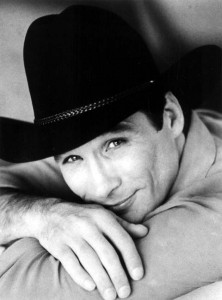
Clint Black Starter Kit
 Clint Black burst onto the country music landscape with the famed Class of ’89, as one of the group’s leading members. With his neo-traditionalist sound, he caught people off guard with his uncanny channeling of his hero, Merle Haggard.
Clint Black burst onto the country music landscape with the famed Class of ’89, as one of the group’s leading members. With his neo-traditionalist sound, he caught people off guard with his uncanny channeling of his hero, Merle Haggard.
As time passed, we would quickly learn that Black was his own man as he earned two triple Platinum albums, four Platinum albums and one gold album. Moreover, he would soon establish his own sound, which the country music audience was more than willing to accept.
Ten Essential Tracks
“A Better Man”
From the 1989 album Killin’ Time
It is impossible not to include Clint Black’s first single in his Starter Kit. Not only is it a great song from a seminal album, it sprung to the top of the charts and introduced people to a voice that eerily resembled that of Merle Haggard’s.
“Killin’ Time”
From the 1989 album Killin’ Time
Black was known for his clever wordplay, which showed up in “Killin’ Time” with “This Killin’ time is Killin’ me.”

 Our readers have clearly responded well to our Back to the Nineties features this month. (Fret not, there are more on the way.) Part of the reason is that so many of you, like myself and Leeann, first discovered country music in that decade.
Our readers have clearly responded well to our Back to the Nineties features this month. (Fret not, there are more on the way.) Part of the reason is that so many of you, like myself and Leeann, first discovered country music in that decade.